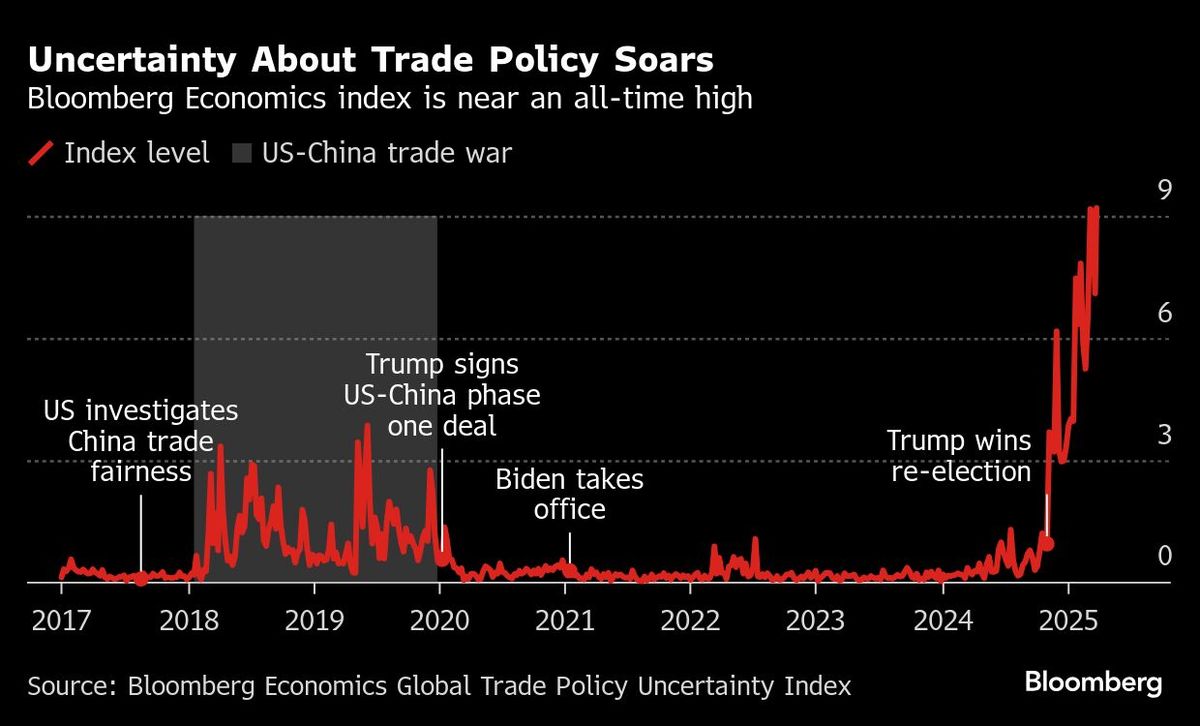
European Union's chief trade negotiator Maros Sefcovic begins talks with his US counterparts on Friday about President Donald Trump’s far-reaching tariffs.
(April 4): The European Union (EU) is realistic about what near-term deliverables the bloc’s chief trade negotiator, Maros Sefcovic, can attain when he begins talks with his US counterparts on Friday about President Donald Trump’s far-reaching tariffs.
The Europeans will aim to salvage as much as possible of the transatlantic relationship and the existing economic order, according to people familiar with the bloc’s thinking. But they have no expectations of returning to the previous status quo.
Trump this week announced broad tariffs on imports into the US, including 20% duties on EU goods, as part of his effort to dismantle the global trading system. The bloc has said it would prefer to negotiate a settlement but is prepared to retaliate with countermeasures if needed, including with its own tariffs, taxing services and targeting American tech firms.
Sefcovic is expected to discuss options such as lowering the EU’s own tariffs, potential joint investments as well as easing certain regulations and standards. Bloomberg reported earlier that the European Commission, which handles trade matters for the EU, was already working on a “term sheet” with possible concessions.
But the bloc will push back against chipping away at its tech and tax rules, said the people, who spoke on the condition of anonymity. European officials see their regulations as balanced and legitimate and they don’t want to sacrifice those because Trump says they’re unfair impediments for US trade.
The latest US measures come after Trump announced a 25% import tariff on steel and aluminium as well as on cars and some auto parts. The EU announced a set of countermeasures of up to €26 billion (RM127.35 billion) in response to the metals duties. Trump has said he’ll unveil other sectoral duties on products including lumber, pharmaceutical goods and semiconductors.
EU trade ministers will meet on Monday to try to forge a united message and to provide input for the countermeasures that the commission is preparing, the people said. The commission estimates that the car and reciprocal levies will hit around €350 billion of European goods.
The commission insists that all options are on the table to retaliate but hasn’t yet given specific details to member states, said the people. Still, diplomats consider that a response, even if proportionate, would need to target American services given the magnitude of the US tariffs.
“We are working on a package of responses that can go far beyond tariffs to bring the US to the negotiating table and get a balanced agreement,” French Finance Minister Eric Lombard said on BFM TV Friday.
Lombard added that member states are discussing options such as targeting digital services, tweaking EU regulations to punish American products and reviewing the transatlantic exchange of data that could harm large tech firms in the US.
One of the options being discussed is the anti-coercion instrument (ACI), the EU’s most powerful trade tool that would allow the bloc to hit US services in different manners. But even though the ACI is on the table of options, it’s considered a tool of last resort, given the likely outsize impact it would cause, one official said.
The Europeans want to signal to the American side that they have a powerful package to retaliate ready to face the negotiations in a balance manner. Still, officials and diplomats expect very difficult talks because it’s still unclear what the exact demands are from the Trump administration.
The commission also still needs to reach an agreement with member states on what specific concessions it can offer the US during the talks, according to the people. Some are ready to explore tweaking regulations on food or cutting red tape for US companies.
“The consequences will be dire for millions of people around the globe,” Commission President Ursula von der Leyen said after Trump’s tariff announcement this week. “And what is more, there seems to be no order in the disorder.”
Uploaded by Felyx Teoh
- Global funds hit pause on Indonesia after Prabowo policy changes
- Embattled billionaire Ong Beng Seng to step down from Hotel Properties
- Trump warns tariffs coming for electronics after reprieve
- Jentayu signs 40-year power purchase agreement for RM2.8b 162MW Sabah hydropower project
- Singapore eases monetary policy as expected, sees weaker growth in 2025
- Goldman Sachs warns oil faces ‘large surpluses’ through 2026
- China’s stock rescue in full swing as ETF inflows hit record
- Knight Frank survey indicates optimism for Malaysia’s commercial sector this year
- The State of the Nation: US’ trade deficit-based ‘reciprocal’ tariffs set to test fiscal and monetary policy space
- Thailand finalises US trade strategy ahead of talks next week

